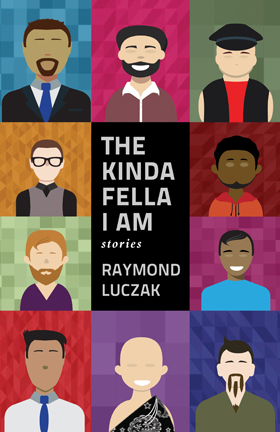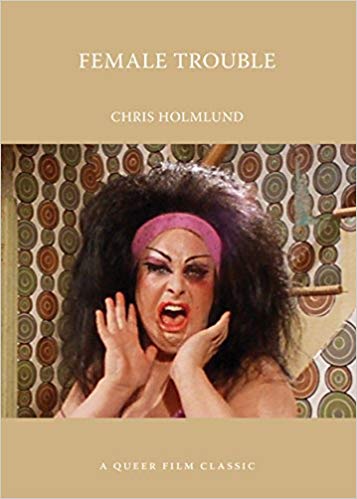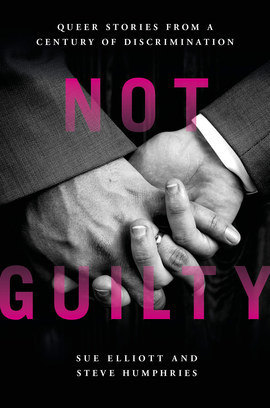 Queer Clout: Chicago and the Rise of Gay Politics
Queer Clout: Chicago and the Rise of Gay Politics
by Timothy Stewart-Winter
Pennsylvania. 320 pages, $24.95
In 1924, a Chicago postal clerk, Henry Gerber, founded the Society for Human Rights, one of the nation’s first gay rights organizations. Predictably, it was swiftly shut down. In the early 1950s, a Chicago nurse, Shirley Willer, created a sanctuary network for LGBT people. “We took in young women and sometimes young men who had been thrown out of their homes.” In 1964, the City Council debated banning James Baldwin’s novel Another Country from a city-funded college course, exposing “how central sexuality was to the volatile politics of race, class, and education.” Thus do we learn that, in addition to being “hog butcher for the world,” jazz hub, and hotspot for Prohibition battles, Chicago has a fascinating history of LGBT culture and struggle, which Timothy Stewart-Winter has enjoyably presented in this book. The approach is egalitarian, including the role of lesbians, with an emphasis on blacks’ and queers’ “shared focus on police brutality.” As Chicago inched towards inclusivity, “politicians, especially black and white liberals, increasingly saw political advantage in backing gay rights.” Did someone mention queer clout? The book offers a blueprint for enacting change that paid off in one major U.S. city.
Sarah Sarai
 The Kinda Fella I Am
The Kinda Fella I Am
by Raymond Luczak
Reclamation Press. 156 pages, $19.95
One of the originators of LGBT disability literature, Raymond Luczak writes poetry, essays, plays, and memoirs that have unapologetically celebrated deaf queerness. His groundbreaking Eyes of Desire (1993) illuminated the lives of deaf gay men and lesbians. In 2015, he expanded this universe with the QDA: A Queer Disability Anthology, featuring fiction, poetry, nonfiction, and comics by 48 contributors. His latest book, The Kinda Fella I Am, is a collection of short stories disputing the notion, to quote one character who is quadriplegic, that “Somehow disability is equated with impotence. We are not sexual beings.” Quite the opposite; Luczak’s characters revel in their sexuality in these ribald, fictional tales. Whether in bathhouses, bedrooms, or on-line, people with disabilities grapple with loneliness and lust while celebrating raunchy sensuality. Deafened as an infant following double pneumonia, Luczak is a lucid writer whose viewpoint is informed by his outsider status. One of the characters in the book laments, “Each of us freaks, especially with physical defects from a young age, have been shamed relentlessly all our lives.” But he poignantly reframes the narrative of the grotesque into one of sensual bodies that are cherished. This book should serve to remind the LGBT community to look beyond disability and embrace the whole person.
John R. Killacky
 Female Trouble: A Queer Film Classic
Female Trouble: A Queer Film Classic
by Chris Holmlund
Arsenal Pulp Press. 231 pages, $17.95
John Waters has finally arrived in academia as a subject to be analyzed and “unpacked,” in the lingo of postmodern criticism. Chris Holmlund, a film professor at the University of Tennessee-Knoxville, has written a study of Waters’ Female Trouble (1974). Her project is to delve into the film’s æsthetic idiom and to position the movie in the history of independent film. She gives background material about Waters and his ensemble of players, introducing us to his Baltimore team of rebels, the Dreamlanders, including the infamous Edith Massey, Aunt Ida in Female Trouble, and, of course, the legendary drag queen Divine (aka Harris Glenn Milstead). Female Trouble is a perverse coming-of-age story about Dawn Davenport (played by Divine), who runs away from her bourgeois family and goes on a mind-altering journey, embarking on a life of mayhem and crime in service of celebrity. For Dawn, infamy is preferable to living an ordinary life. Waters is an astute observer of American values and hypocrisies, and Female Trouble is a zany satire of America’s cult of celebrity, the obsession with “being somebody” regardless of what you have to do to get there (has anything changed?). This is a book to be enjoyed by both novices and die-hard John Waters aficionados.
Irene Javors
 Not Guilty: Queer Stories from a Century of Discrimination
Not Guilty: Queer Stories from a Century of Discrimination
by Sue Elliott and Steve Humphries
Biteback Publishing. 338 pages, $17.95
The companion volume to a TV documentary in the UK, Not Guilty contains the oral histories of men discussing their personal experiences of dealing with sexuality and coming out in the fifty years since the passage of the Sexual Offences Act, which decriminalized homosexual behavior in 1967. Despite the predictably painful recollections, many of the subjects remain adamant that they were never guilty of anything—hence the book’s title. The book consists largely of transcriptions of interviews which, while interesting, lose a bit of their color in written form. Most compelling are the pre- and post-World War II stories of men coming out with virtually no words for their feelings and no positive role models to emulate. One of the unexpected joys of this collection is the glimpse it provides into the argot of the time: “Men were “omes,” women “palones,” so an “om-palone” was an effeminate man. Policemen were “Lily” (Lily Law) or “Brenda” (Brenda Bracelets), and a suspected agent provocateur was a “charpering ome.” Not Guilty tracks these individual lives through the era of gay liberation, AIDS, eventual decriminalization, and the 2010 Equality Act. It is a valuable look at the experiences of gay men over the past five decades in Great Britain, and an invaluable reference for those who did not live through those times themselves.
Dale Boyer




